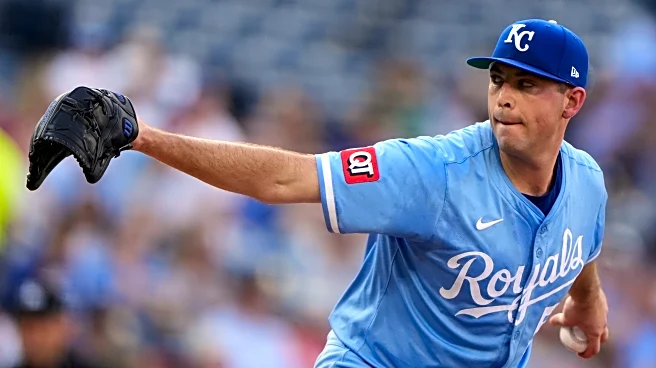What's Happening?
Mitch Keller, a pitcher for the Pittsburgh Pirates, faced challenges during his recent game against the Atlanta Braves. Keller did not factor into the decision, allowing one run on three hits and five walks over 3.2 innings. Despite striking out six batters, Keller struggled with control, issuing his highest number of walks for the season in this outing. This performance marked his shortest appearance since August 19 against Toronto. Keller's season statistics include a 4.19 ERA, a 1.26 WHIP, and a 150:51 strikeout-to-walk ratio over 176.1 innings. He is set to enter the third year of his five-year contract with the Pirates in 2026.
Why It's Important?
Keller's performance is significant for the Pirates as they assess their pitching roster for the upcoming season. His control issues in the recent game highlight areas for improvement, which could impact his role and effectiveness as a starter. The Pirates rely on Keller as a solid contributor, and his ability to manage walks and maintain consistency will be crucial for the team's success. Fantasy baseball enthusiasts also monitor Keller's stats closely, as his performance can influence fantasy league outcomes and player rankings.
What's Next?
Looking ahead, Keller will need to focus on improving his control to reduce walks and extend his innings in future games. The Pirates may consider adjustments in their training or strategy to support Keller's development. As the team prepares for the 2026 season, Keller's performance will be under scrutiny, potentially affecting his position in the starting rotation. Fans and analysts will watch closely to see how Keller addresses these challenges and contributes to the Pirates' overall performance.
Beyond the Headlines
Keller's struggles with control may prompt discussions about the Pirates' pitching coaching and development strategies. The team's ability to nurture talent and address weaknesses could have long-term implications for their competitiveness in the league. Additionally, Keller's performance may influence contract negotiations and decisions regarding player retention and acquisition.











